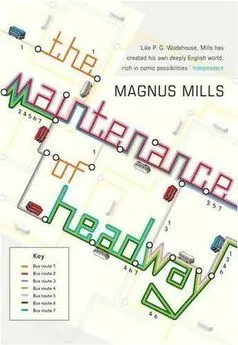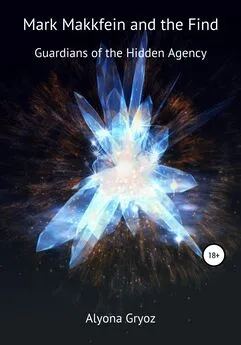Mark Mills - The Information Officer
- Название:The Information Officer
- Автор:
- Жанр:
- Издательство:неизвестно
- Год:неизвестен
- ISBN:нет данных
- Рейтинг:
- Избранное:Добавить в избранное
-
Отзывы:
-
Ваша оценка:
Mark Mills - The Information Officer краткое содержание
The Information Officer - читать онлайн бесплатно ознакомительный отрывок
Интервал:
Закладка:
“I’m saying I don’t want another death on my conscience.”
“You think I do?” Max paused. “I’m asking you to trust me on this. A couple of days to check some things out. I’ll get straight onto it. I promise.”
Freddie remained silent for a moment. “Okay, but you’re on your own. They’ve got me working out of Mtarfa for the foreseeable.”
It was a testimony to Freddie’s skill as a surgeon that he spent much of his time being shunted among the island’s hospitals, according to where his gifts were required. There was certainly no lack of call for them.
“When are you heading out there?”
“Ten minutes ago. A Beaufighter just pancaked at Luqa. The navigator is pretty chewed up, by all accounts.”
“I’m going to need the exact dates when the other two girls were found.”
“Then stay on the line. I’ll be right back.”
Max spent half an hour clearing his desk and briefing the members of his team. They were quite capable of holding the fort in his absence. He was on the point of leaving when the rising dirge of the air-raid siren stopped him in his tracks.
“Damn,” he muttered, making for the staircase that led to the roof. Fleur-de-Lys occupied the high ground between Hamrun and Birkirkara, and the zinc-clad roof of Saint Joseph’s offered one of the finest views on the island: a sweeping three-hundred-sixty-degree panorama that took in Rabat and the walled city of Mdina to the west, roosting on their spur of white rock, keeping watch over the parched southern plain, where towns and villages lay scattered like dice on a tabletop. To the east, beyond Valetta and her twin harbors, lay a seemingly endless expanse of viridian-green water. The corrugated hills that rolled off to the north beyond Mdina held little strategic importance for the enemy. Almost everything that was of interest to them—the airfields, the dockyards, and the submarine base—lay within the field of vision of a person standing on the roof of Saint Joseph’s.
It was a biblical landscape—sun-bleached, shadeless, harsh to the eye—broken up into miniature fields by a dense lacework of stone walls. The walls were there to prevent the precious dusting of soil from being blown about by the hot summer winds from Africa. In the winter, the gregale blew in from the northwest, bringing the heavy rains that turned everything to mud.
Right now, though, a brassy sun was overhead, and the first white galleon clouds of the year were gathering over the island.
Max turned as the big guns up on Ta’ Giorni ridge slammed a salvo into the air. Pale puff-balls of bursting ack-ack fire mottled the sky to the northeast, heralding the arrival of a vast and heavily escorted formation of 88s.
It soon became clear that the airfields were about to take another bad knock, and Max could feel his plans for the day slipping away from him. Traveling, like much of life on Malta, was something you did in between raids, and even then you kept one eye on the heavens for the lone marauders who slipped in under the radar screen. The scarcity of gasoline had stripped the streets of motor vehicles in the past couple of months, and a lone motorcycle throwing up a cloud of dust was more of an invitation than ever to an enemy pilot with an itchy trigger finger.
He had been strafed only once—on the old dirt road that switch-backed its way between Ghajn Tuffieha and Mdina—but the suddenness and ferocity of the attack were indelibly etched in his memory. One moment he was barreling along, the wind in his face; the next moment the road in front of him was erupting. The fighter was well past by the time Max registered it, and it was a further few seconds before his brain was able to make the connection between the dot twisting away into the distance and the strip of earth torn out of the ground across his path. He might have processed the information more rapidly if he hadn’t been so joyously distracted at the moment when the attack occurred. Three dreamlike days by the sea at Ghajn Tuffieha had dulled his reactions.
He had earned the short break, his first in more than a year since arriving on the island and taking up his post as deputy to Charles Headley, the information officer at the time. Headley had also performed the function of deputy chief censor, which he had taken as an excuse to do neither job properly. Max was hardly industrious by nature, but he had never before witnessed anything approaching Headley’s eagerness to shirk his duties (or, for that matter, Headley’s curious desire to share with anyone who would listen that the art to skiving lay in cultivating a faintly embattled air).
Connections counted, though, and Headley’s Oxford education might well have seen him through if he hadn’t graduated from one of the more minor colleges. Few were surprised when Headley failed to return from one of his “recces” to Alexandria, and the attitude toward his “reassignment” was best summed up by Hugh, who had known him at university.
“Good chap, old Headers, but strictly front-of-house, if you know what I mean.”
Max had never been quite sure if Hugh’s observation had made a slight nod to the rumor doing the rounds that Headley had been caught in flagrante with a young Egyptian boy.
Either way, Max had found himself promoted, far beyond his years and experience, to run the department. Any pride in this meteoric rise was short-lived; he quickly realized what others had figured out long before him: that he had already been running the department. He had acquitted himself well in the top job—he knew that—but it was still strange to him that the task of manipulating minds came so naturally to him. He had always regarded himself as something of a loner. That had certainly been the picture presented to him by his family over the years, and one he had come to believe in. Yet here he was, deep in the minds of the masses, second-guessing their reactions to events, guiding and enlightening them, a high priest at the altar of the great god Morale.
It hadn’t all been plain sailing. A month after his promotion he had been hit in the shoulder by shrapnel from a parachute mine, and it had looked for a moment as though he might be replaced. Then in early September the letter had arrived from Eleanor, requesting that he call off their engagement. It was dated May, and his first thought had been of all the letters, all the sweet words, he had written to her over the previous three months while her thoughts had been elsewhere, with the faceless and nameless Canadian pilot who had stolen her heart. It was telling, he now realized, that this should have been his first thought: pragmatic and self-pitying. Hardly the reaction of a man who has just lost the love of his life.
Word of his misfortune soon circulated, largely thanks to Rosamund and Hugh, who had long since set themselves up in his life as surrogate parents, psychiatrists, and general busybodies. He also sensed their hand behind the order that had come down from on high that he take a few days off from his duties to lick his wounds. Gozo had been an option. The fertile little island sat just off the north coast, a short ferry ride away, and was a popular destination for those looking to leave the war behind them for a bit. The Riviera Hotel at Ghajn Tuffieha had been Mitzi’s recommendation, and she’d sold the place to him hard.
It didn’t disappoint. The stone-built hotel was perched high above a shallow bay guarded by two towering headlands and backed by one of the few sandy beaches on the island. It was a remote and peaceful spot, a small oasis in the rugged stretch of coastline. The hotel was clean and comfortable, its kitchen offered a bewildering array of fresh fish and vegetables, and its bar was stocked to overflowing. On his arrival, Max ate his first full and proper meal in months, washing it down with a surprisingly good bottle of white wine. He then took to his bed for an afternoon nap and slept like a fallen statue for sixteen hours straight.
The same base need for rest and recovery was written on the faces of the other guests, and while the odd polite word was exchanged, they generally gave one another a wide berth. The enemy planes passing high overhead every so often were studiously ignored. Most of the guests adhered to the same regime: loafing about with lightweight novels on the beach in between bouts of swimming, eating, and drinking. The water in the bay was clear, warm, and inviting, even with summer slipping away. The fish, oblivious of the war, were abundant, as were the fishermen, who appeared from God-knew-where each morning, bobbing about in their colorful boats. Some sold straight to the Riviera, and every morning the stumpy little head chef would pick his way down the precipitous path to the beach, examine their catch, and feign disappointment—the standard prelude to a spell of noisy bartering.
The fishermen were keen to know when the Italian bombers would return. It was not a question Max could answer, or, for that matter, one that he properly understood, until it was explained to him that the Italians, unlike their fearless German allies, were inclined to jettison their bombs short of the island and turn tail at the first sign of resistance. When this occurred, a fisherman was no longer obliged to wring his living from the depths; he could pluck it willynilly from the surface. It was an impressive sight, apparently, the surface of the sea carpeted white with the bellies of stunned fish.
On his third day there, Max struck out south along the coastal path. It was a bright, windless morning, unnaturally still, and a millpond sea licked lazily at the base of the cliffs. A strange feeling crept over him as he walked, a sense of timelessness. Whose footsteps was he treading in? How many others had negotiated the same twisting path over the aeons? The same path, but different men, each carrying his own hopes, dreams, and regrets.
Malta’s history was rich, romantic, and violent. How could it be anything else? The island stood at the crossroads of the Mediterranean, closer to Europe than Africa, though not by much. It also happened to possess one of the finest natural harbors in the world. No wonder that so many seafaring peoples had sought to make it their own. The Phoenicians, Greeks, Carthaginians, Romans, and Byzantines had all held sway over the island, only to be displaced. The Fatimid Arabs had gone the way of the others, although their language still lived on in the speech of the modern-day islanders. Since that time, Norman knights, Spanish grandees, and Napoleonic generals had all made their home here. How different was he, a commissioned officer of His Majesty’s Army?
He tried to shrug off this fanciful notion, but it trailed him like his shadow. It was oddly comforting, the sense of connection coupled with the cyclical futility of it all. For a brief moment he could have died and it wouldn’t have mattered to him one jot.
Set against this, his troubled saga with Eleanor took on a new complexion. He found himself feeling happy for her. She had no more wanted their marriage than he had. At least she had found the courage to do something about it. He sat on a rock, pulled the letter from his pocket, and read it again. This time he was proud of her, and he found himself hoping that they could remain friends. That’s what they had always been—good friends, ever since they were young and he had played Joseph to her Mary in the church nativity play. That was long before they both began to sense that others expected something more of them. Well, his stepmother, to be more precise.
He was back at the Riviera in time for lunch, and he entered the dining room in high spirits. They soared higher still when he spotted Mitzi at a corner table. She was alone, although as he approached, he noticed that the chair across from her had recently been vacated, if the full glass of wine and the cigarette smouldering away in the ashtray were anything to go by.
Читать дальшеИнтервал:
Закладка:




![Джеймс Купер - Пионеры, или У истоков Саскуиханны [The Pioneers, or The sources of the Susquehannah]](/books/1066142/dzhejms-kuper-pionery-ili-u-istokov-saskuihanny-t.webp)




